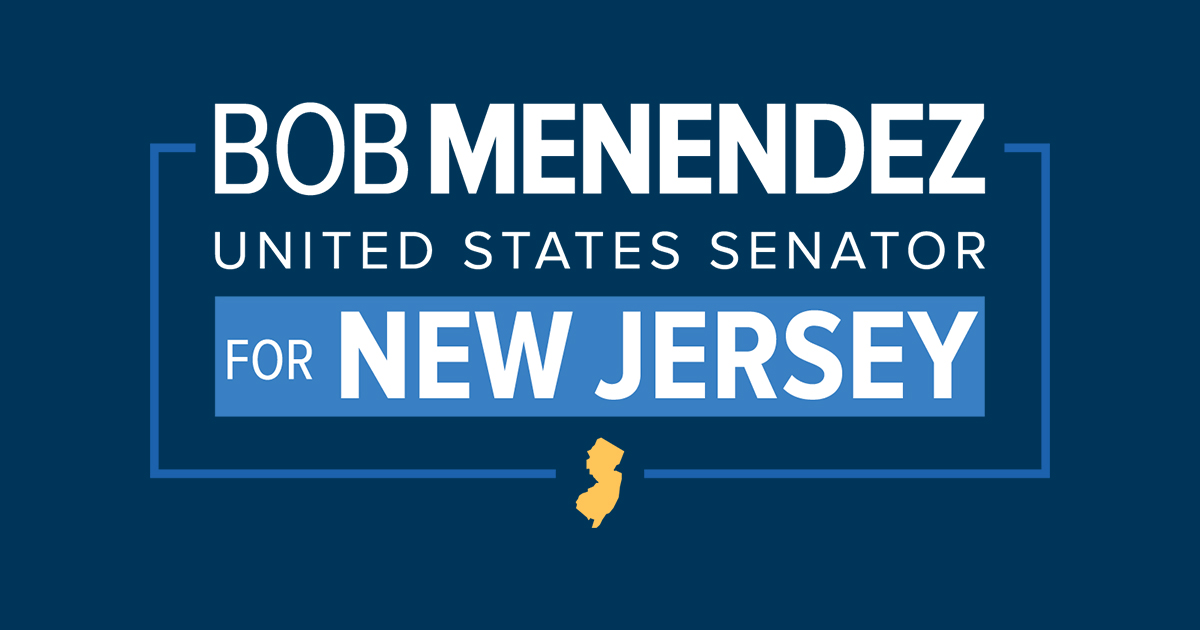Source: United States Senator for New Jersey Bob Menendez
WASHINGTON, D.C. – During a Senate Finance Committee Hearing today, U.S. Senator Bob Menendez (D-N.J.) pushed for greater federal support for youth mental health services. The pandemic has taken a toll on the mental health of children and young adults, particularly in communities of color. The Senate Finance Committee, which sets national health policy, is planning to develop a package of policies to address mental health in America.
Sen. Menendez highlighted his bill, The Pursuing Equity in Mental Health Act, which would address growing issues of suicide and mental health facing young people, particularly in socially and economically disadvantaged communities that have disproportionately faced disparities in access to mental health treatment and outcomes before and during the COVID-19 pandemic. While discussing his bill, which is also sponsored by Sens. Cory Booker (D-N.J.) and Catherine Cortez Masto (D-Nev.), the Senator noted the disproportionate impact the pandemic has had on Latino communities across the country.
“Latino children were far more likely to experience the death of a primary caregiver during the pandemic and more likely to contact the virus and be hospitalized themselves,” said Sen. Menendez, a senior member of the committee. “These experiences were compounded by other preexisting disparities among Latino children – including higher uninsured rates and lower access to mental health services and supports.”
CLICK TO VIEW VIDEO
Today’s witness at the hearing, U.S. Surgeon General Vivek Murthy, committed to working with Sen. Menendez to advance mental health equity and begin closing some of the racial disparities that preceded and have been exacerbated by the pandemic.
According to the National Alliance on Mental Health, 1 in 6 U.S. youth aged 6-17 experience a mental health disorder each year, with 72,000 people aged 12-17 suffering from depression in just New Jersey alone. The Centers for Disease Control and Prevention (CDC) has also found that suicide remains the second leading cause of death among teens aged 15-19, with the suicide death rate among Black youth increasing faster than any other racial or ethnic group according to a report published by the CBC.
Furthermore, according to the AAMC, Black and Latino children have witnessed more illness and death during the pandemic than other children, and during this same period the CDC found that Black and Latino groups across all ages are reporting higher rates of symptoms of anxiety and depression than their white counterparts. The rates among youth have been even more alarming, which exhibited a 24% increase in the proportion of children going to emergency health departments for mental health care in the first six months of the pandemic compared to the same period in 2019.
Ahead of today’s hearing, Sens. Menendez and John Thune (R-S.D.) introduced the Children’s Health Insurance Program (CHIP) School Behavioral Health Incentive Act. This bipartisan legislation would encourage states to develop health services initiatives that address behavioral health needs in schools.
CHIP currently permits states to engage in health services initiatives – activities to protect the public health of kids or expand the capacity of services. States can choose to establish one or multiple initiatives that are targeted to address local needs using a portion of their administrative funds. If a state opts to establish an initiative aimed at addressing behavioral health in schools, the CHIP School Behavioral Health Incentive Act would provide greater funding flexibility.
Sen. Menendez has long been a champion of CHIP and in New Jersey, more than 230,000 children from low-income and working families rely on CHIP’s for NJ FamilyCare.
Sen. Menendez also called on the administration to pursue greater outreach to communities on the Maternal, Infant, and Early Childhood Home Visiting (MIECHV) program, which is an evidenced-based program that supports people who are pregnant and young families.
“This multi-year support is critical to having young people start life off healthier and better prepared for early childhood learning. It also helps parents, including through mental health screenings and connecting to community-based resources,” the Senator said.
Through MIECHV, nurses, social workers, or other professionals visit at-risk families in their homes to evaluate their living situations and provide information on resources available to improve the health, educational, and economic opportunities for at-risk children. Resources include health care, early education, parenting skills, child abuse prevention, and nutrition education or assistance.
Sen. Menendez is the Senate champion of the MIECHV program and led the charge for a five-year reauthorization in 2017 to ensure families across the nation continue to receive services from this important program. Sen. Menendez secured a provision in the ARP that provided an additional $150 million for staffing and servicing for MIECHV programs across the country. In New Jersey, all twenty-one counties are served by this program. 5,672 New Jersey families and 7,549 New Jersey children benefited from MIECHV programs in 2019.
